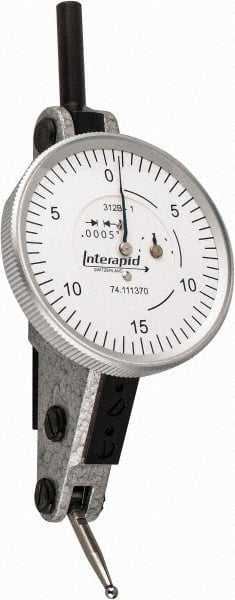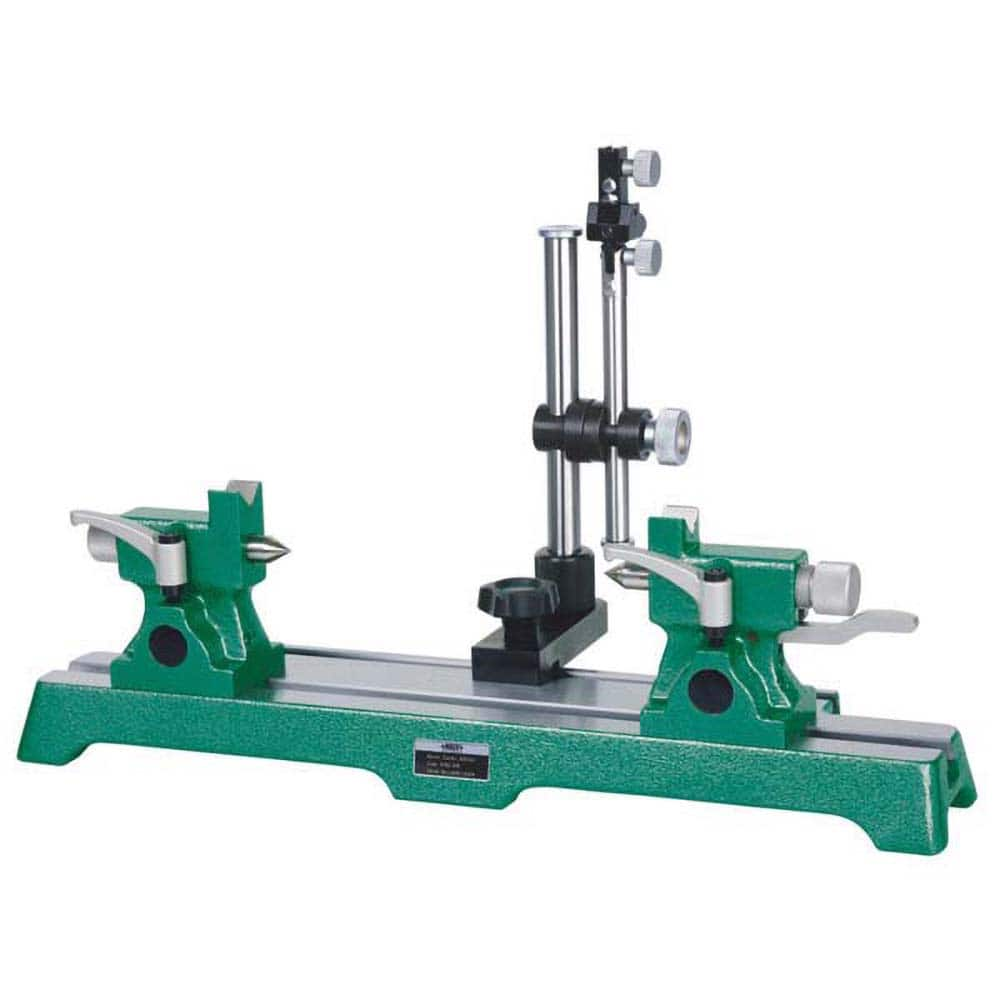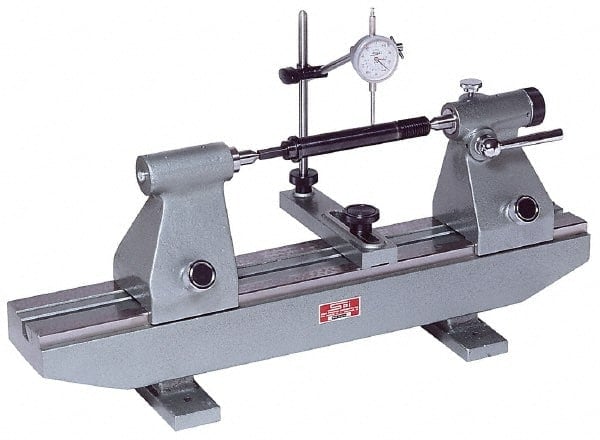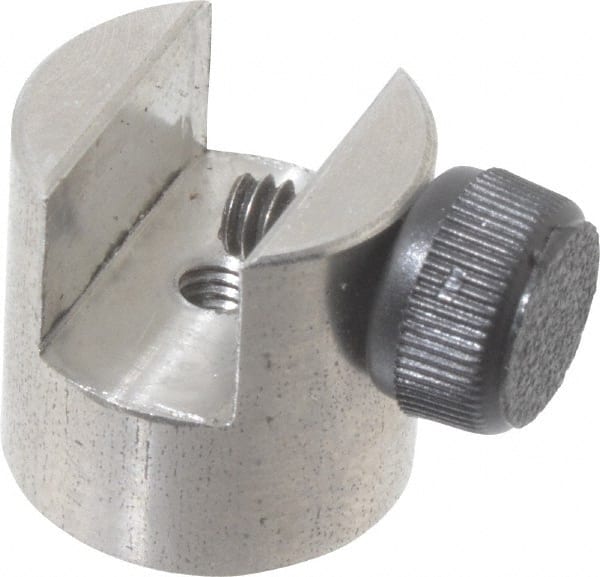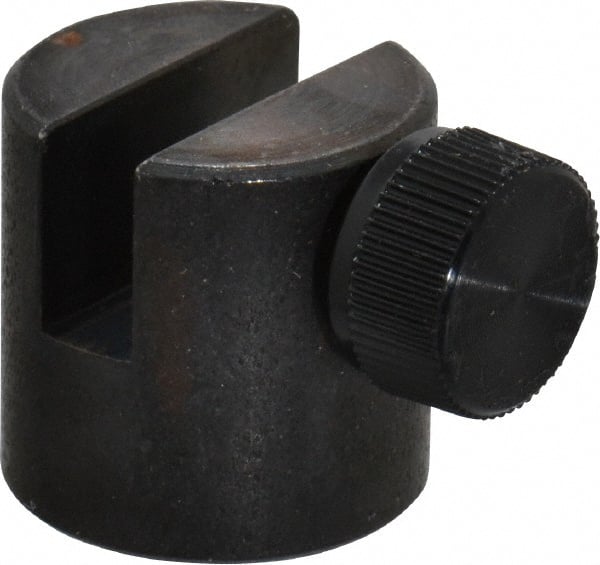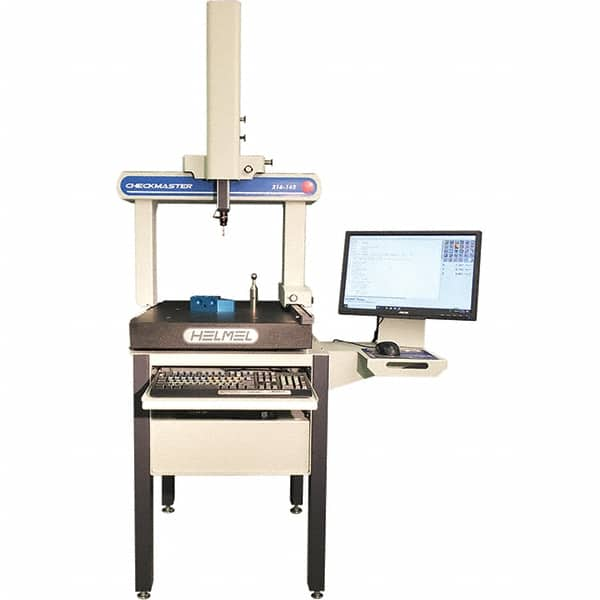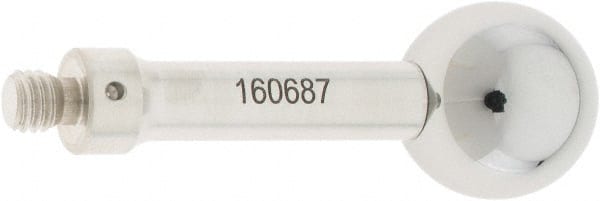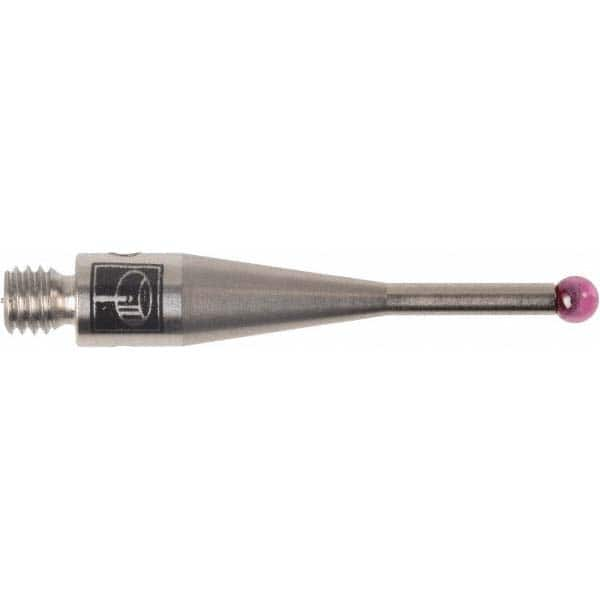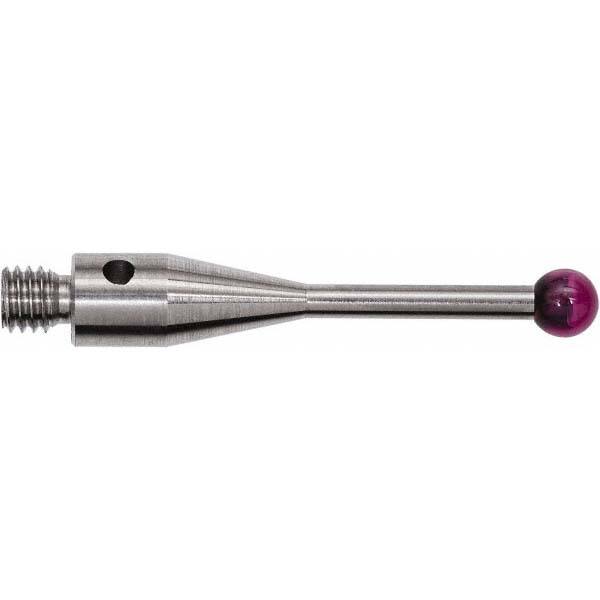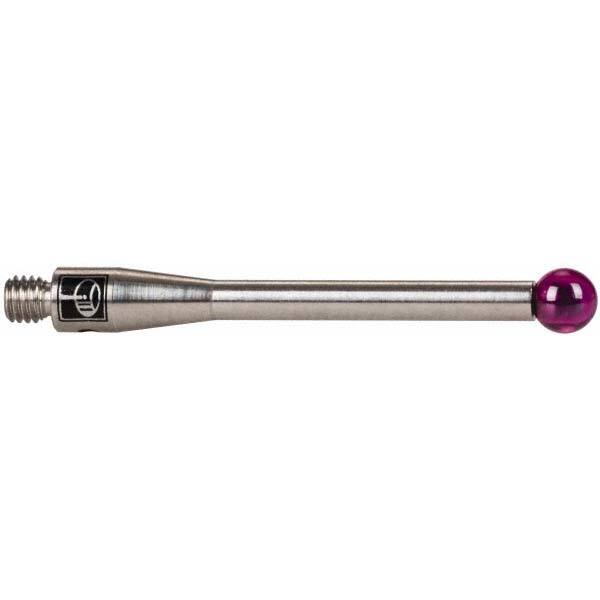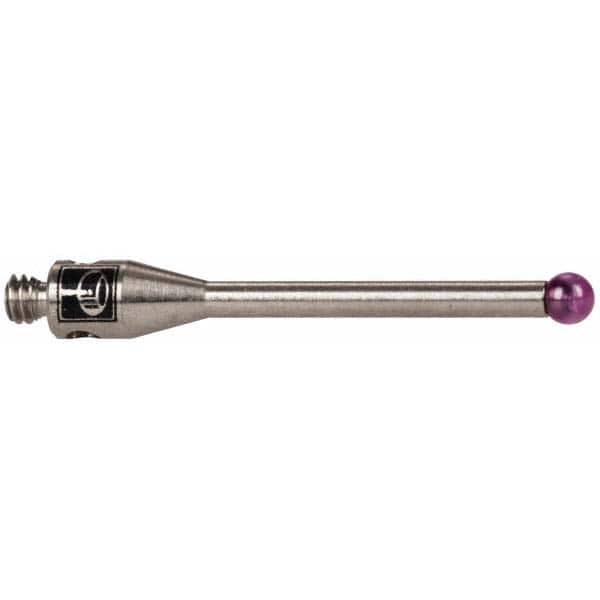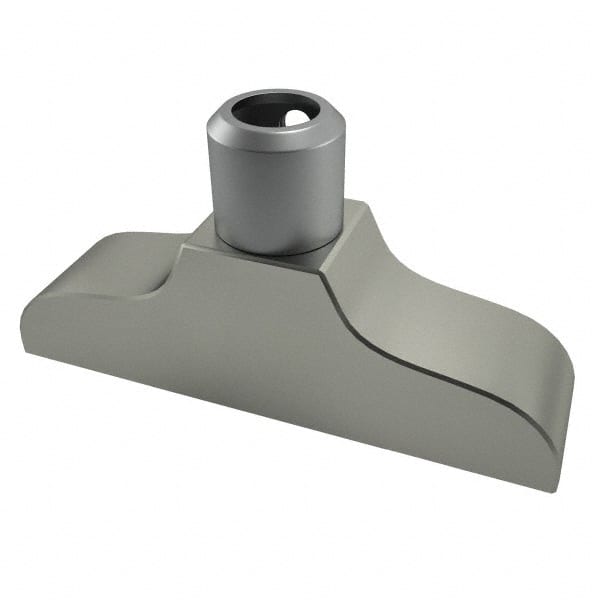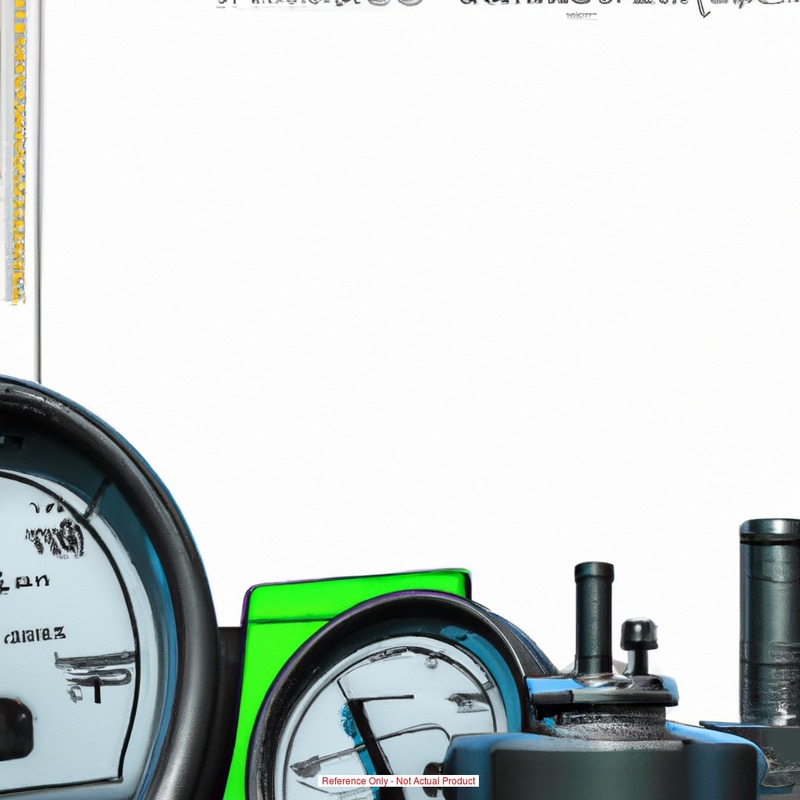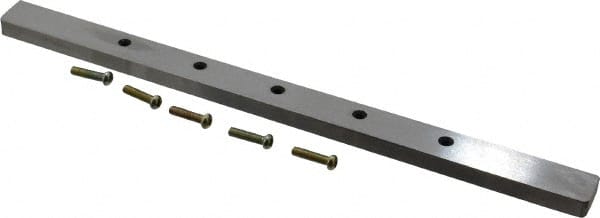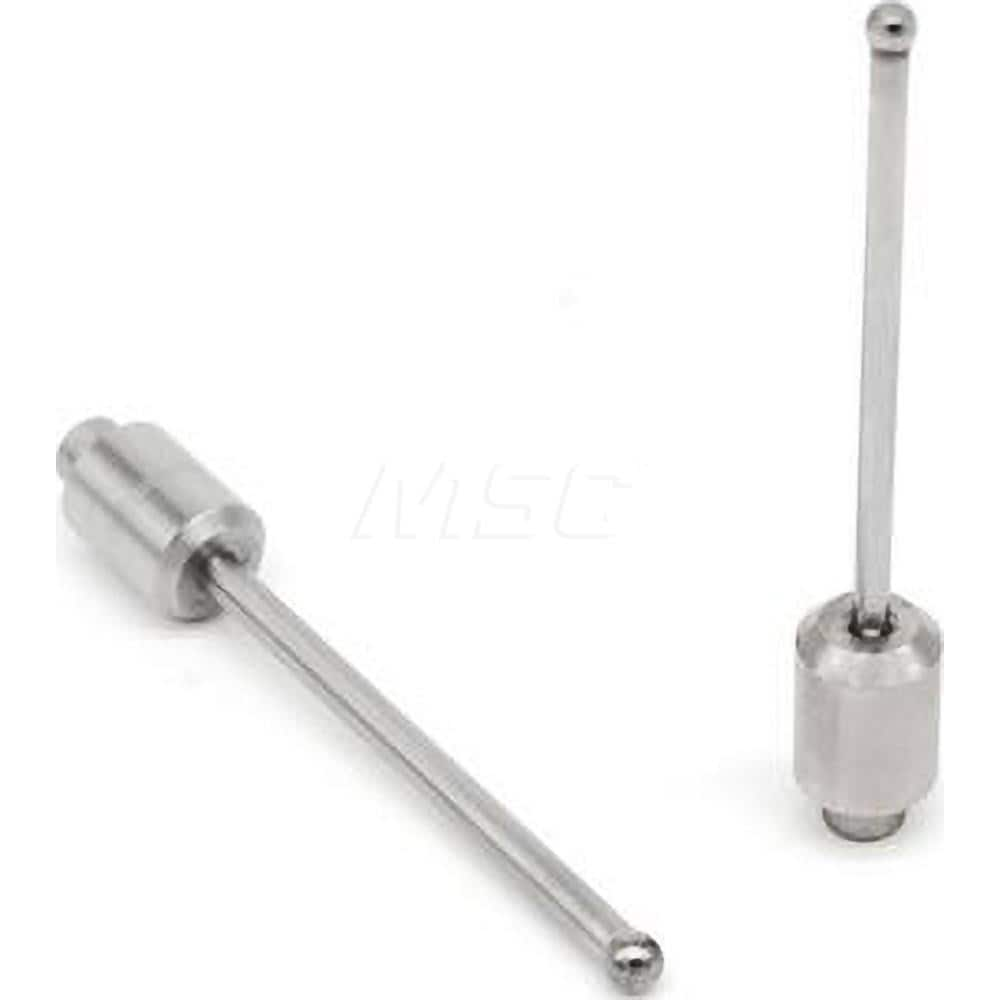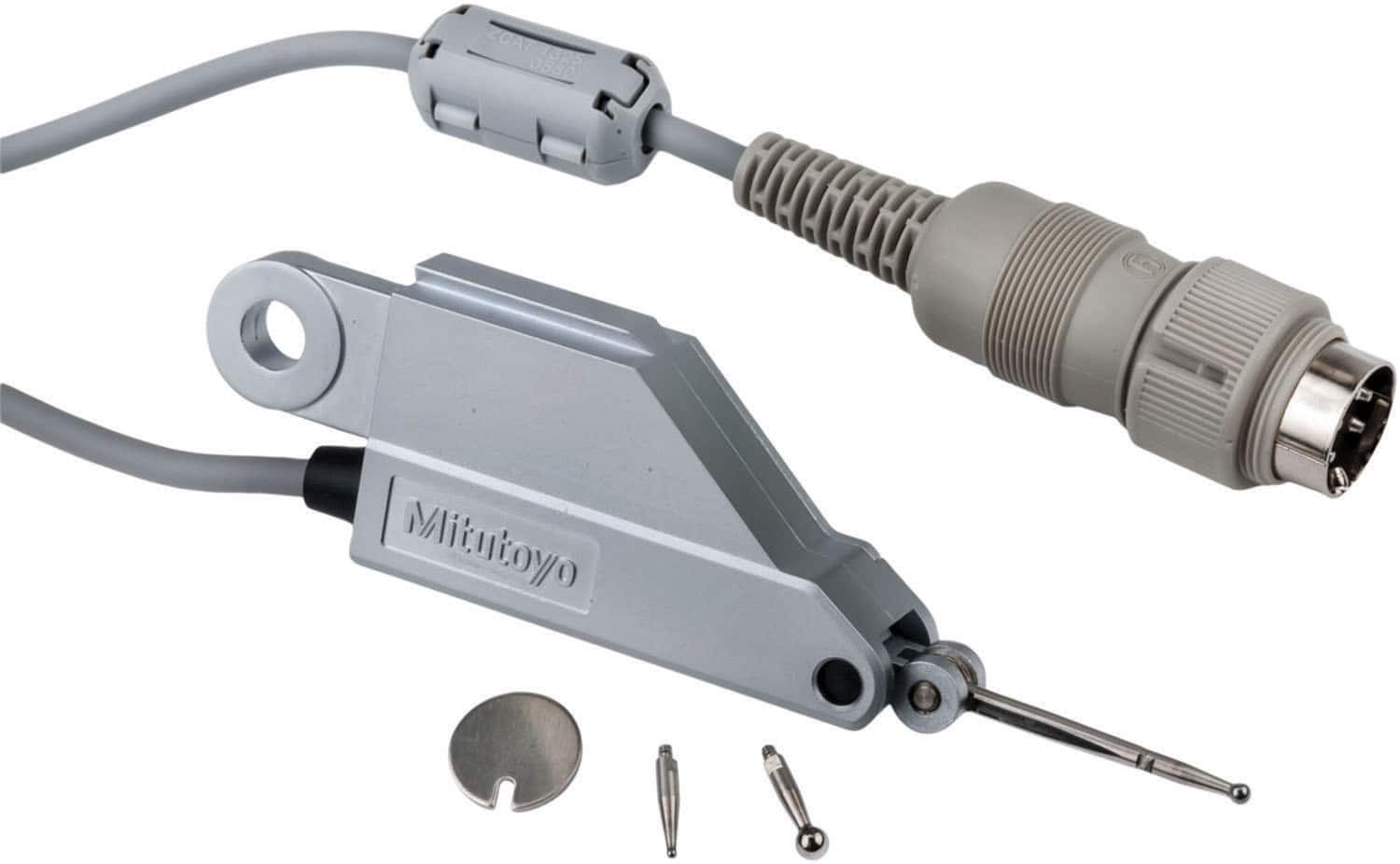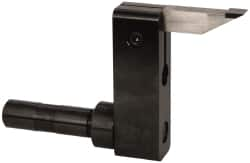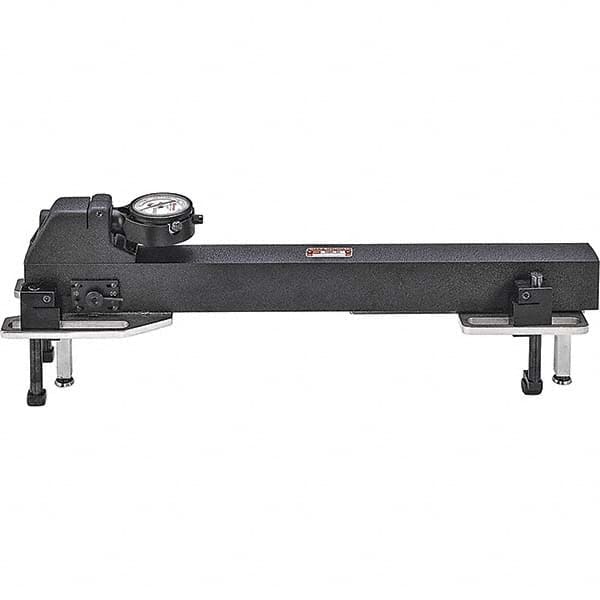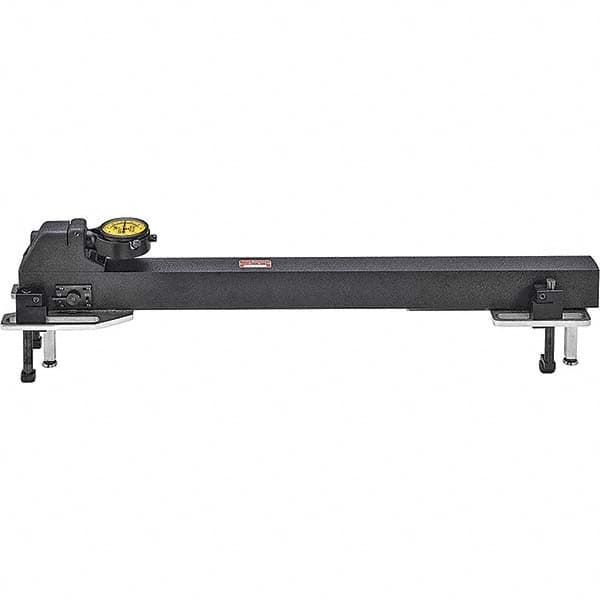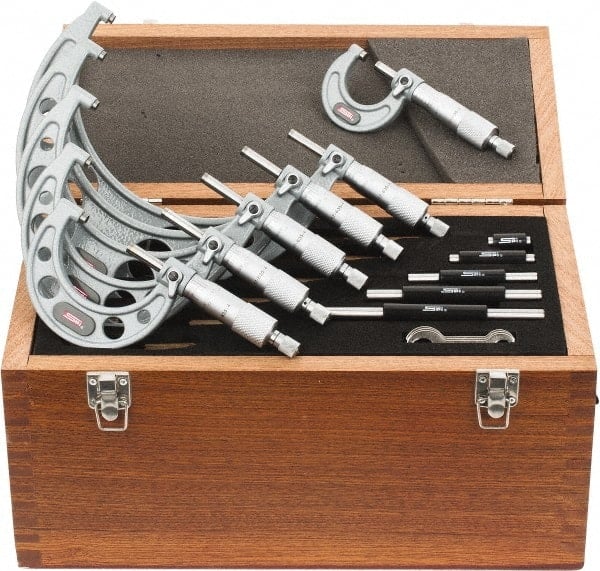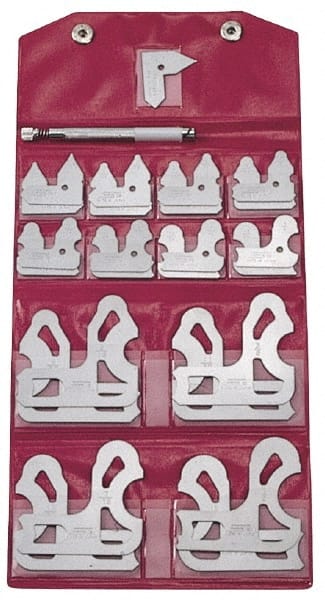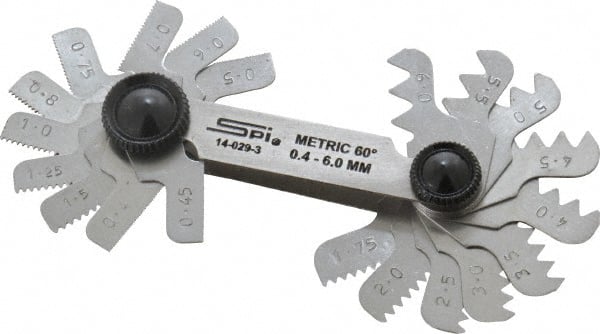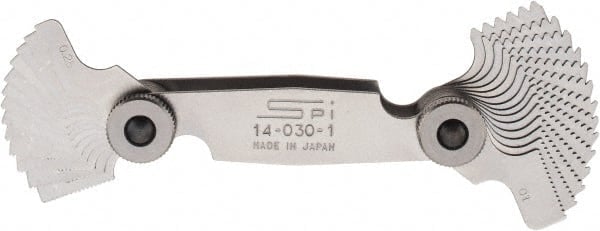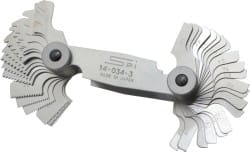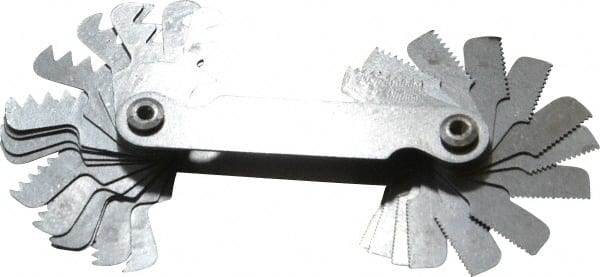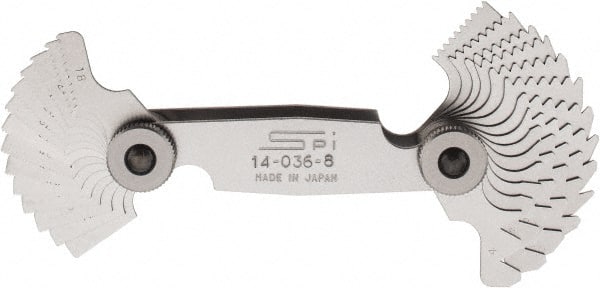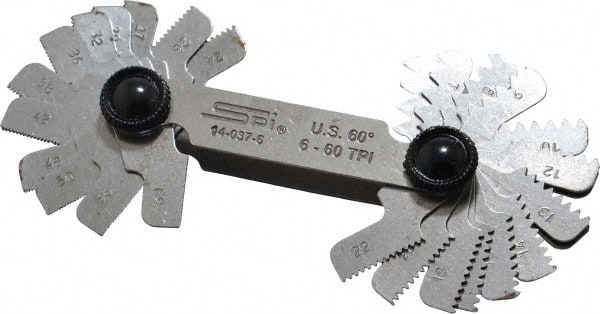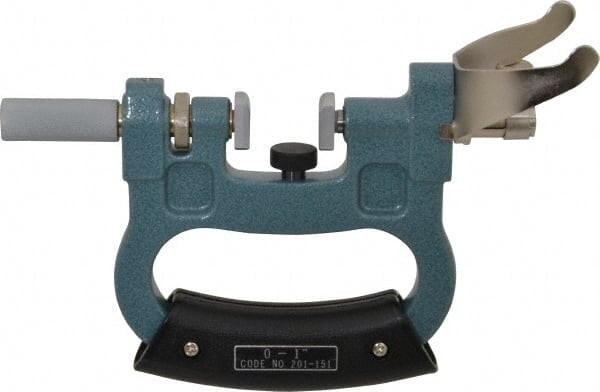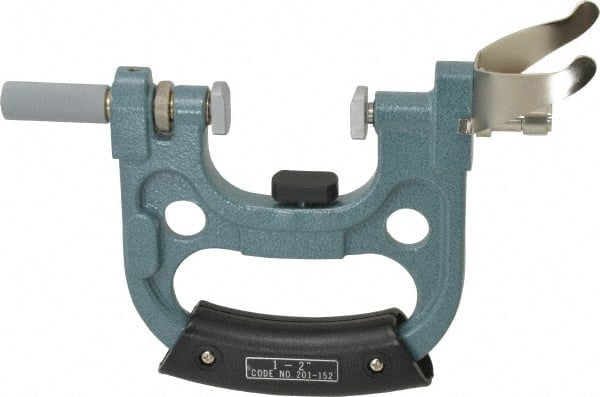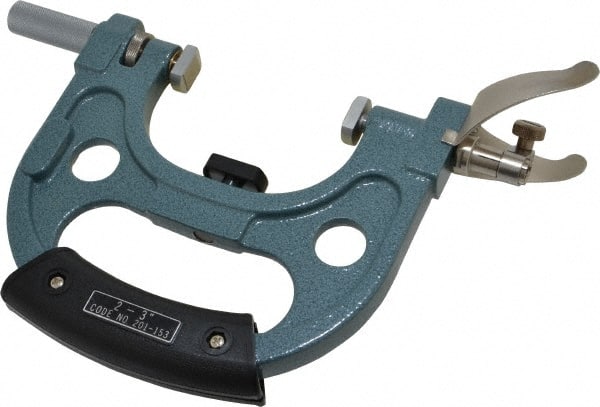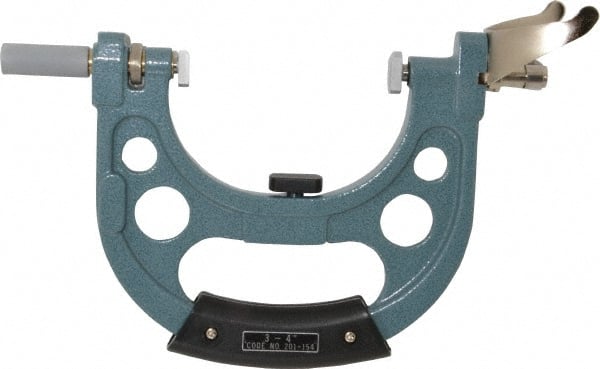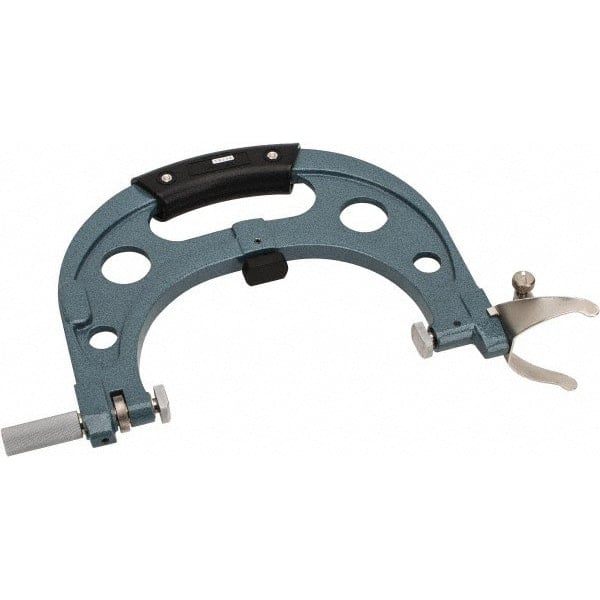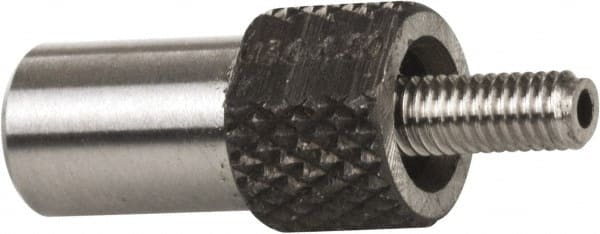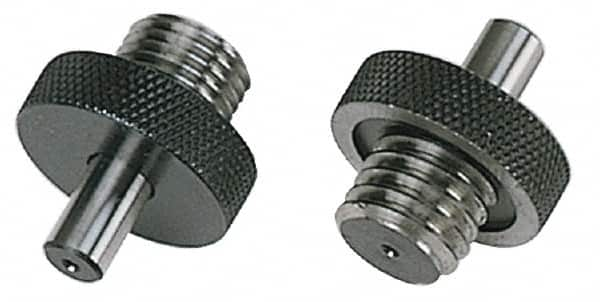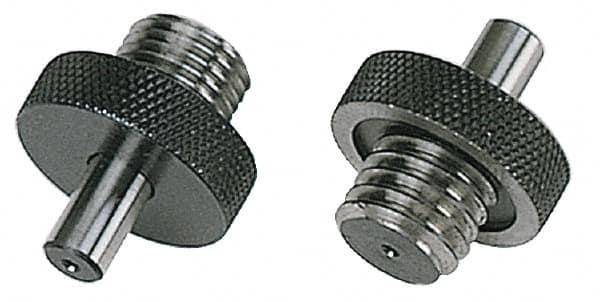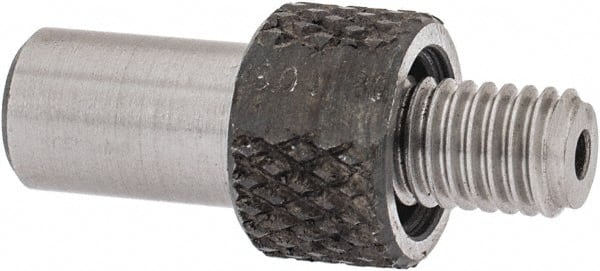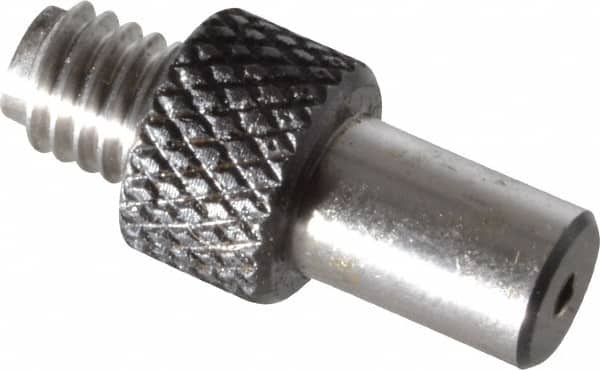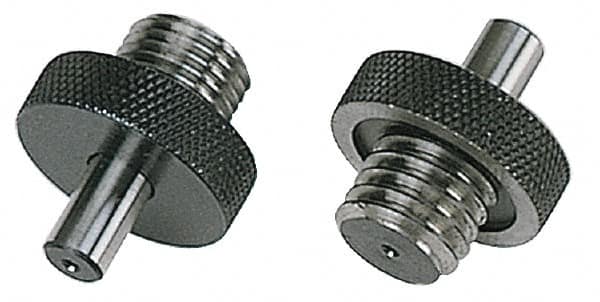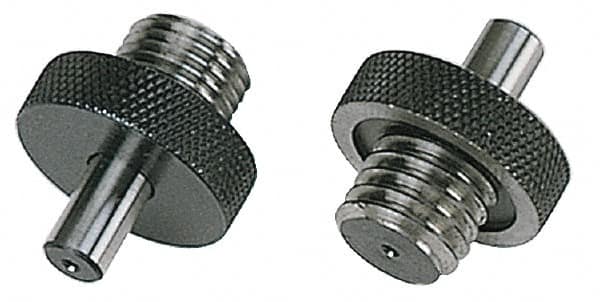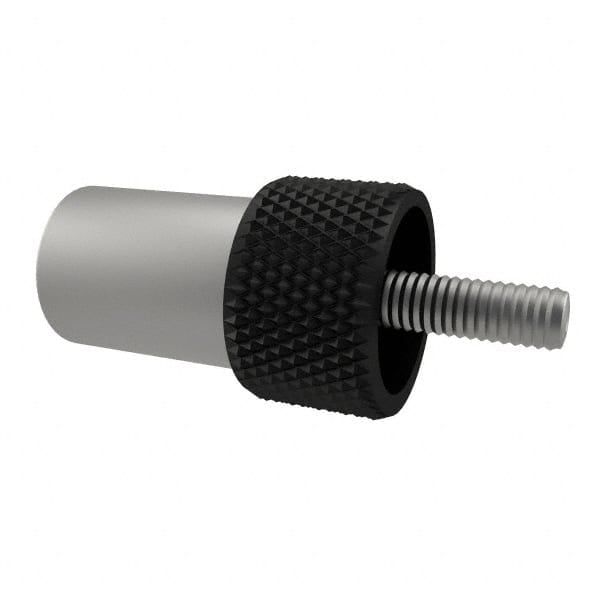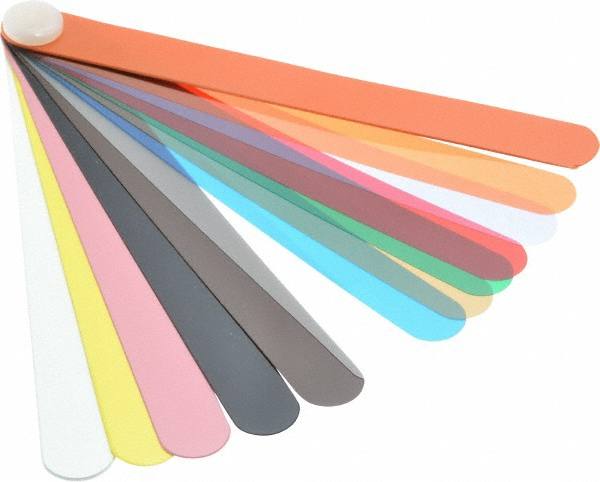Dimensional Measuring Tools - Products, History and Diverse Applications

Introduction
Welcome to a fascinating journey through the evolution of dimensional measuring tools, metrology (i.e. the scientific study of measurement) and their diverse applications. In this comprehensive blog post, we'll explore the history of these essential instruments and delve into the wide array of product categories available today. From ancient origins to modern technology, we'll uncover how these tools have shaped industries and continue to play a vital role in precision measurement.
I. The Origins of Dimensional Measurement
Early Human Attempts at Measurement
The journey of dimensional measurement begins with early humans who ingeniously devised methods to measure dimensions using the most readily available tools—parts of their own bodies. In these nascent societies, where formal units of measurement were yet to be established, humans relied on the familiarity of their own physical attributes. The handspan, the distance from the tip of the thumb to the tip of the pinkie when the fingers are outstretched, and the foot, the length from heel to toe, became the rudimentary units of measurement.
These primitive units, while lacking standardization, were surprisingly effective within the context of the time. Early civilizations used them extensively for various purposes, from constructing shelters to crafting tools. The simplicity of these measurements made them accessible to everyone, fostering cooperation and collective progress.
Ancient Civilizations and Measuring Devices
As societies advanced, so did their methods of measurement. Ancient civilizations, such as the Egyptians and Mesopotamians, left their mark on the history of dimensional measurement by developing more sophisticated tools and techniques. These innovations were pivotal in shaping the evolution of measurement.
In these ancient cultures, necessity and ingenuity drove the creation of measuring devices. Rulers and gauges crafted from materials like wood and bone emerged, replacing the reliance on body parts for measurement. These early tools represented a significant leap in precision and accuracy. The use of durable materials allowed for consistent measurements over time, reducing the variability inherent in human anatomy.
The precision of these instruments had practical applications in various domains. In construction, they enabled builders to create more stable and aesthetically pleasing structures. In art and craftsmanship, they facilitated the creation of intricate and symmetrical designs. The advancements in measuring devices during this period laid the foundation for the pursuit of precision that would follow in the centuries to come.
Standardized Units of Measurement
The need for standardized units of measurement became increasingly evident as societies expanded, and trade and commerce flourished. With various regions using their own systems of measurement, there was a growing need for consistency to facilitate fair and efficient trade.
In response to this need, ancient civilizations introduced standardized units of measurement. Notable among these was the cubit, a unit used in ancient Egypt. The cubit was based on the length of a Pharaoh's arm from the elbow to the tip of the middle finger. This standardized unit provided a common reference point for builders and craftsmen, ensuring uniformity in structures and artifacts.
Similarly, ancient Rome adopted the foot as its standardized unit of measurement, based on the length of a human foot. This choice had practical implications, as it was easily relatable to everyday life. The introduction of the foot as a standardized unit marked a significant step toward measurement consistency.
These standardized units of measurement revolutionized accuracy and consistency in various fields, including construction, trade, and engineering. They allowed different regions and cultures to communicate effectively about dimensions, laying the groundwork for future advancements in dimensional measurement techniques.
II. The Renaissance and Precision Measurement
Renaissance and the Scientific Resurgence
The Renaissance, a period spanning from the 14th to the 17th century, witnessed a remarkable resurgence of scientific inquiry and artistic creativity. It was a time when human knowledge and innovation experienced a reawakening, leading to significant advancements in many fields, including precision measurement.
During this transformative era, thinkers like Leonardo da Vinci and Galileo Galilei played pivotal roles in the exploration of the physical world. Their relentless curiosity and commitment to empirical investigation laid the foundation for the scientific method, which, in turn, had a profound impact on precision measurement.
Leonardo da Vinci, a true Renaissance polymath, made invaluable contributions to the understanding of proportion and measurement in art and science. His meticulous observations of nature and detailed anatomical drawings demonstrated a profound appreciation for precision. These insights influenced not only the art of his time but also the scientific pursuit of precision measurement.
The Vernier Caliper
One of the most iconic inventions of the Renaissance era was the Vernier caliper, a marvel of engineering and precision measurement. This ingenious instrument was developed by Pierre Vernier in 1631. It represented a significant leap forward in the quest for highly precise measurements, a hallmark of Renaissance innovation.
The Vernier caliper operates on a simple yet ingenious principle: the relative motion of two scales, one fixed and one sliding, allows users to make extremely fine measurements. By providing a means to read measurements to fractions of a millimeter or even smaller, the Vernier caliper unlocked new levels of precision in fields ranging from physics to engineering and beyond.
This instrument's widespread adoption revolutionized dimensional measurement. It became a standard tool in laboratories, workshops, and scientific expeditions, enabling scientists and engineers to achieve unprecedented levels of accuracy in their work. The Vernier caliper's enduring legacy endures as a testament to the power of human ingenuity and the pursuit of precision.
Emergence of Micrometers and Gage Heads
As science and engineering progressed during the Renaissance, the need for even more accurate measuring instruments became evident. Micrometers and gage heads began to emerge during this period, further enhancing the precision available to scientists and engineers.
Micrometers, with their finely threaded screws and precision scales, allowed users to measure dimensions at the micrometer level, a level of precision previously unattainable. This innovation was instrumental in fields like astronomy, where precise measurements of celestial objects were essential for advancing our understanding of the cosmos.
Gage heads, on the other hand, provided a means to measure dimensions relative to a reference point with exceptional accuracy. This capability found applications in engineering, enabling the creation of precise mechanical components and machinery.
In conclusion, the Renaissance was a transformative period in the history of precision measurement. It saw the emergence of innovative instruments like the Vernier caliper, micrometers, and gage heads, each contributing to the relentless pursuit of precision that continues to shape our world today. The Renaissance thinkers and inventors paved the way for a future where precise measurement would become an indispensable part of scientific, engineering, and industrial progress.
III. Industrial Revolution and Advancements
Impact of the Industrial Revolution
The Industrial Revolution stands as a defining chapter in the history of human progress. This era, which began in the late 18th century and continued into the 19th century, marked a profound shift in manufacturing and industry. Mass production became the norm, necessitating greater precision in every aspect of production, including dimensional measurement.
The transition from artisanal craftsmanship to mechanized production demanded tools and techniques that could ensure consistency and quality on an unprecedented scale. This demand, in turn, led to the development of more sophisticated measuring tools, revolutionizing the field of dimensional measurement.
Surface Plate Centers and Bench Centers
As manufacturing underwent rapid expansion during the Industrial Revolution, certain tools emerged as indispensable for ensuring precision and quality. Among these were surface plate centers and bench centers, two critical instruments that played pivotal roles in the quest for precision.
Surface plate centers, typically large, flat granite or cast iron surfaces, provided an ideal foundation for the measurement of complex workpieces. The level and smooth surface of these plates allowed for accurate measurements, ensuring that manufactured parts met precise specifications. Their contribution to product quality was immeasurable, as they facilitated the creation of parts that fit together seamlessly in the rapidly growing industrial landscape.
Bench centers, on the other hand, offered a means to measure the concentricity and alignment of cylindrical workpieces. These instruments became indispensable in the production of various mechanical components, where precise alignment was crucial. Bench centers allowed manufacturers to achieve the tight tolerances required for the assembly of machinery, contributing to the efficiency and reliability of industrial processes.
Both surface plate centers and bench centers exemplified the Industrial Revolution's emphasis on precision and standardization. They were not only tools but also symbols of a new era in manufacturing, one characterized by the pursuit of excellence and the relentless drive to achieve the highest levels of precision.
In conclusion, the Industrial Revolution brought about a seismic shift in manufacturing and industry, necessitating a revolution in dimensional measurement. The development of instruments like surface plate centers and bench centers represented a leap forward in precision and played a pivotal role in shaping the modern industrial landscape. These tools continue to be foundational in industries worldwide, embodying the enduring legacy of the Industrial Revolution's impact on dimensional measurement and manufacturing excellence.
IV. Modern Dimensional Measuring Tools
In the modern era, Coordinate Measuring Machine (CMM) tools have ushered in a revolution in dimensional measurement. These highly sophisticated instruments utilize advanced technology to precisely measure the geometry of objects, making them indispensable in industries such as aerospace and automotive, where precision is paramount. Now, let's delve deeper into the product categories available on GoVets, each with its own specific functions and applications in the realm of dimensional measurement.
Dimensional Measuring Tools
Dimensional measuring tools form the backbone of precision measurement in various industries. These tools include vernier calipers, micrometers, and height gauges, among others. They are essential for ensuring that products meet exact specifications in fields like manufacturing, aerospace, and engineering.
Description: Dimensional measuring tools encompass a wide range of instruments designed to measure length, thickness, diameter, and other dimensions with precision. They are used in industries where accuracy is paramount, including automotive, aerospace, and construction.
Applications: These tools find applications in numerous areas:
- Quality Control: Ensuring products meet precise standards.
- Engineering: Precision measurements for design and construction.
- Manufacturing: Checking component dimensions in real-time.
- Research and Development: Testing prototypes and concepts.
- Aerospace: Ensuring safety and functionality of aircraft parts.
Specifications: Dimensional measuring tools come in various types, including vernier calipers, micrometers, and height gauges. They offer accuracy down to micrometers or even nanometers.
Price Range: Prices vary depending on the type and precision of the tool. Entry-level tools can start at around $20, while high-precision instruments can range from hundreds to thousands of dollars.
Product Recommendations:
Bench Centers & Surface Plate Centers
Bench centers and surface plate centers are critical for precise measurement in workshops and manufacturing facilities. These tools provide stable and accurate reference surfaces for dimensional inspection.
Description: Bench centers and surface plate centers are robust, stable platforms used for accurate measurement and inspection of cylindrical and flat workpieces in machining and manufacturing environments.
Applications: They are commonly used in:
- Machine Shops: Ensuring precision in machining processes.
- Quality Control: Verifying the accuracy of parts.
- Research and Development: Testing new concepts and prototypes.
Specifications: Bench centers come in various sizes, with features like adjustable centers and T-slots for workpiece fixation.
Price Range: Prices vary based on size and features, ranging from a few hundred to several thousand dollars.
Product Recommendations:
Calipers & Caliper Gages
Calipers are versatile tools used for measuring the distance between two opposite sides of an object. Caliper gages provide high-precision measurements in manufacturing settings.
Description: Calipers are hand-held tools with two adjustable legs used to measure distances and dimensions accurately. Caliper gages are specialized calipers designed for high-precision measurements.
Applications: Calipers are used in:
- Manufacturing: Measuring part dimensions.
- Carpentry: Ensuring accurate cuts.
- Engineering: Precision measurements in various fields.
- DIY Projects: Home improvement and woodworking.
Specifications: Calipers come in various types, including vernier, digital, and dial calipers, each offering different levels of accuracy and ease of use.
Price Range: Prices for calipers vary based on type and precision. Basic models start at around $10, while high-precision digital calipers can cost hundreds of dollars.
Product Recommendations:
Coordinate Measuring Machine Tools
Coordinate measuring machines (CMMs) are automated systems used to measure the dimensions of objects precisely. These machines play a crucial role in quality control and manufacturing processes.
Description: CMMs are advanced instruments that use multiple probes and sensors to measure the dimensions, angles, and contours of complex workpieces with high accuracy.
Applications: CMMs are used in industries such as:
- Aerospace: Ensuring precision in aircraft components.
- Automotive: Quality control for vehicle parts.
- Medical Devices: Manufacturing precise medical equipment.
- Manufacturing: Checking the accuracy of machined parts.
Specifications: CMMs come in various sizes and configurations, with different probing systems and software options.
Price Range: Prices for CMMs vary widely based on size and capabilities, ranging from tens of thousands to millions of dollars.
Product Recommendations:
Depth Gages
Depth gages are precision instruments used to measure the depth of holes, slots, and other recesses. They are vital in various industries for ensuring accurate depth measurements.
Description: Depth gages come in different forms, including digital depth gages and dial depth gages. They feature a probe that is inserted into the recess to measure its depth.
Applications: Depth gages find applications in:
- Metalworking: Measuring the depth of machined holes.
- Carpentry: Ensuring precise drilling depths.
- Quality Control: Checking the depth of manufactured parts.
Specifications: Depth gages can vary in size and accuracy, with some offering digital readouts for added precision.
Price Range: Prices for depth gages depend on the type and precision. Basic models can start at around $20, while high-precision digital depth gages may cost a few hundred dollars.
Product Recommendations:
Drop & Test Indicators, Holders & Accessories
Drop indicators, test indicators, and their accessories are indispensable tools for measuring small variations and deviations in dimensions.
Description: Drop indicators and test indicators are precision instruments with a needle or lever that moves to indicate variations in measurements. Accessories like holders and bases provide stability and adaptability.
Applications: These tools are used in various fields, including:
- Machine Shops: Checking machine precision.
- Quality Assurance: Verifying part specifications.
- Engineering: Measuring tiny variations in components.
Specifications: Drop and test indicators come in different styles, including dial indicators and digital indicators, with varying ranges and sensitivities.
Price Range: Prices for these indicators and accessories vary based on type and features. Basic models start at around $20, while high-precision digital indicators can cost a few hundred dollars.
Product Recommendations:
EDM Measuring Tools
EDM (Electrical Discharge Machining) measuring tools are essential in industries that use EDM processes for precision machining and toolmaking.
Description: EDM measuring tools include precision instruments for measuring features created by EDM, such as wire EDM or sinker EDM.
Applications: EDM measuring tools are used in:
- Tool and Die Making: Ensuring precision in mold and die components.
- Aerospace: Measuring EDM-cut components in aircraft parts.
- Medical Device Manufacturing: Checking EDM-machined medical instruments.
Specifications: These tools include EDM wire diameter measuring devices and specialized measuring instruments for EDM-created features.
Price Range: Prices for EDM measuring tools vary based on type and precision, ranging from tens to hundreds of dollars.
Product Recommendations:
Gage Heads & Comparators
Gage heads and comparators are used for high-precision measurements in various industries, including manufacturing and quality control.
Description: Gage heads and comparators are instruments that provide precise measurements by comparing a part's dimensions to a reference standard.
Applications: They are used in:
- Aerospace: Ensuring accuracy in aircraft components.
- Automotive Manufacturing: Checking tolerances in engine parts.
- General Manufacturing: Verifying part specifications.
Specifications: Gage heads and comparators come in various styles, including mechanical and electronic, with different levels of precision.
Price Range: Prices vary based on type and precision, ranging from a few hundred to several thousand dollars.
Product Recommendations:
Height Gages
Height gages are precision instruments used to measure the height of objects with great accuracy. They are crucial in industries where height measurements are critical.
Description: Height gages come in various forms, including vernier height gages and digital height gages. They feature a measuring arm or probe that can be adjusted for height measurements.
Applications: Height gages find applications in:
- Machining: Ensuring uniform part heights.
- Quality Control: Verifying the height of manufactured items.
- Engineering: Precise height measurements in design and prototyping.
Specifications: Height gages can vary in size, precision, and features, with some offering digital readouts for enhanced accuracy.
Price Range: Prices for height gages depend on type and precision. Basic models can start at around $50, while high-precision digital height gages may cost a few hundred dollars.
Product Recommendations:
Inside Diameter Measurement Gages
Inside diameter measurement gages are specialized tools used for measuring the internal dimensions of objects, such as bores and holes.
Description: These gages include bore gages, inside micrometers, and other instruments designed for accurate internal diameter measurements.
Applications: Inside diameter measurement gages are used in:
- Automotive Manufacturing: Checking engine cylinder bores.
- Gunsmithing: Measuring firearm barrel diameters.
- General Machining: Verifying internal dimensions.
Specifications: These gages come in various styles, with some offering interchangeable anvils or digital readouts for precision.
Price Range: Prices for inside diameter measurement gages vary based on type and features. Basic models start at around $20, while high-precision digital bore gages can cost a few hundred dollars.
Product Recommendations:
These modern dimensional measuring tools are indispensable for precision measurement in various industries. Whether you're in manufacturing, engineering, or any field where accuracy is paramount, having the right dimensional measuring tools is essential. Let's explore more categories of these tools:
Linear & Distance Measuring Tools
Linear and distance measuring tools are crucial for measuring length and distances accurately. These tools come in various forms, including tape measures, rulers, and laser distance meters.
Description: Linear and distance measuring tools include a wide range of instruments used for measuring lengths, distances, and dimensions accurately.
Applications: These tools find applications in:
- Construction: Measuring distances for building projects.
- Interior Design: Ensuring precise room dimensions.
- DIY Projects: Accurate measurements for home improvements.
- Surveying: Mapping and land measurement.
Specifications: Linear and distance measuring tools come in various types, from traditional tape measures to advanced laser distance meters with digital readouts.
Price Range: Prices vary based on the type and precision of the tool. Basic tape measures can start at a few dollars, while laser distance meters may range from $20 to $200 or more.
Product Recommendations:
Machinist Caliper & Micrometer Tool Kits
Machinist caliper and micrometer tool kits provide a comprehensive set of measuring tools designed for precision work in machining and metalworking.
Description: These tool kits typically include a combination of calipers, micrometers, and other precision measuring instruments.
Applications: They are commonly used by machinists, metalworkers, and engineers for:
- Machine Setup: Ensuring precise machine settings.
- Quality Control: Verifying part dimensions.
- Metalworking: Accurate measurements in metal fabrication.
Specifications: Machinist tool kits come with various types and sizes of calipers and micrometers to cover a wide range of measurements.
Price Range: Prices for these kits vary based on the number and quality of tools included. Basic kits can start at around $50, while comprehensive kits with high-precision instruments can cost several hundred dollars.
Product Recommendations:
Micrometers
Micrometers are precision instruments used for measuring small dimensions with exceptional accuracy. They are indispensable in industries where extreme precision is required.
Description: Micrometers use a calibrated screw to measure distances or thicknesses with high precision. They come in various types, including outside micrometers and inside micrometers.
Applications: Micrometers are used in:
- Machine Shops: Measuring machine parts with precision.
- Engineering: Ensuring accuracy in design and prototyping.
- Manufacturing: Verifying the dimensions of small components.
Specifications: Micrometers come in different styles, including digital, mechanical, and vernier micrometers, each offering various levels of precision.
Price Range: Prices for micrometers vary based on type and precision. Basic models start at around $20, while high-precision digital micrometers can cost several hundred dollars.
Product Recommendations:
Reference Gages
Reference gages are precision instruments used as standards for calibrating other measuring tools and verifying their accuracy.
Description: Reference gages are designed to be highly accurate and stable, making them ideal for calibrating other measuring instruments.
Applications: They are primarily used for:
- Calibration: Ensuring the accuracy of other measuring tools.
- Quality Control: Verifying the precision of measurement equipment.
Specifications: Reference gages come in various forms, including gauge blocks, ring gages, and angle blocks, each serving specific calibration purposes.
Price Range: Prices for reference gages depend on the type and precision. Basic gauge blocks may start at around $10, while precision ring gages can cost hundreds of dollars.
Product Recommendations:
Snap Gages & Accessories
Snap gages are precision instruments used for measuring the outside diameter or thickness of workpieces, especially cylindrical parts.
Description: Snap gages consist of a frame with two anvils that quickly "snap" together around the workpiece, allowing for rapid and accurate measurements.
Applications: They are used in:
- Automotive Manufacturing: Checking engine components.
- Metalworking: Verifying part dimensions.
- Quality Control: Ensuring consistent measurements.
Specifications: Snap gages come in various styles, including fixed-range and adjustable models, to accommodate different workpiece sizes.
Price Range: Prices for snap gages and accessories vary based on type and features. Basic models start at around $50, while high-precision snap gages may cost a few hundred dollars.
Product Recommendations:
Squares, Combination Squares & Protractors
Squares, combination squares, and protractors are essential tools for measuring and marking angles and straight lines with precision.
Description: These tools help ensure that angles are accurately measured and marked for cutting and assembly in woodworking, metalworking, and construction.
Applications: They are used in:
- Carpentry: Marking angles for precise cuts.
- Metal Fabrication: Measuring and marking angles for welding.
- DIY Projects: Ensuring accurate angles in home improvement tasks.
Specifications: These tools come in various forms, including try squares, combination squares, and digital protractors, each designed for specific measuring and marking tasks.
Price Range: Prices for squares and protractors vary based on type and features. Basic models start at around $10, while high-precision digital protractors can cost over $100.
Product Recommendations:
Tapped Hole Location Gages & Sets
Tapped hole location gages and sets are specialized tools used to ensure precise alignment and measurement of threaded holes.
Description: These tools are designed to accurately locate and measure the position of tapped holes, especially in manufacturing and engineering applications.
Applications: Tapped hole location gages are used in:
- Machining: Ensuring the correct placement of threaded holes.
- Aerospace: Verifying the alignment of holes in aircraft components.
- General Manufacturing: Ensuring precise hole positions.
Specifications: Tapped hole location gages come in various sizes and configurations, including sets with multiple gages for different hole sizes.
Price Range: Prices for these gages and sets vary based on the number and size of gages included. Basic sets may start at around $50, while comprehensive sets with various gages can cost several hundred dollars.
Product Recommendations:
Thickness & Feeler Gages
Thickness and feeler gages are precision tools used for measuring gaps, clearances, and the thickness of materials with high accuracy.
Description: Thickness and feeler gages consist of a set of thin, flat strips of metal or plastic that can be inserted into gaps to measure clearances or material thickness.
Applications: These gages are used in:
- Automotive Maintenance: Checking brake pad clearances.
- Engineering: Measuring material thickness in design and manufacturing.
- Machinery Alignment: Ensuring proper clearances in mechanical assemblies.
Specifications: Thickness and feeler gages are available in sets with varying thicknesses and materials to accommodate different measurement needs.
Price Range: Prices for these gages vary based on the number of gages in the set and the material. Basic sets start at around $5, while high-precision sets may cost up to $50.
Product Recommendations:
Thread Pitch Diameter Measuring Wires
Thread pitch diameter measuring wires are specialized tools used to measure the pitch diameter of threaded fasteners with great precision.
Description: These measuring wires are placed in the threads of a fastener, and their dimensions are used to calculate the pitch diameter, ensuring that threaded components fit correctly.
Applications: Thread pitch diameter measuring wires are essential in industries such as:
- Manufacturing: Ensuring thread accuracy in various components.
- Automotive: Verifying thread dimensions in engine parts.
- Construction: Checking threaded connections in building materials.
Specifications: These wires are available in sets with different wire diameters to accommodate various thread sizes and pitches.
Price Range: Prices for thread pitch diameter measuring wire sets vary based on the number and size of wires included. Basic sets start at around $10, while comprehensive sets can cost up to $50.
Product Recommendations:
These modern dimensional measuring tools cover a wide range of applications, from ensuring precision in manufacturing to accurately measuring dimensions in various industries. Whether you're a professional in need of high-precision instruments or a DIY enthusiast looking for reliable tools, these options can meet your measurement needs with accuracy and reliability.
V. Practical Uses and Applications
Now that we've explored the diverse categories of dimensional measuring tools available on GoVets, let's delve into their practical uses and applications, highlighting real-world scenarios where these tools play a pivotal role:
Manufacturing Excellence
In the realm of manufacturing, dimensional measuring tools are the unsung heroes that ensure the precision and accuracy of the products we rely on every day. These tools are indispensable for guaranteeing that manufactured components meet stringent specifications and tolerances. Let's look at some specific applications:
Automotive Precision: In the automotive industry, dimensional measuring tools are employed to scrutinize every aspect of a vehicle's components. From engine parts to brake systems, these tools ensure that each piece meets the exacting standards required for safety and performance. For example, when crafting an engine cylinder, micrometers come into play to measure the piston's diameter with incredible accuracy, ensuring optimal performance and fuel efficiency.
Aerospace Advancements: When it comes to aerospace, precision is paramount. Dimensional measurement tools are instrumental in the fabrication of aircraft and spacecraft components. These tools help maintain the structural integrity and safety of these complex systems. For instance, coordinate measuring machines (CMMs) meticulously inspect aerospace components to guarantee that they adhere to precise geometric specifications, allowing for the safe operation of aircraft and spacecraft.
Consumer Electronics: In the realm of consumer electronics, devices are shrinking in size while packing more power. Precision measurement tools play a pivotal role in ensuring that tiny components, like microchips and connectors, fit together flawlessly. Laser-based measurement tools, for instance, help verify the tolerances of printed circuit boards, ensuring seamless connectivity and functionality in your favorite gadgets.
Quality Control Assurance
Quality control is another domain where dimensional measuring tools shine. These tools are at the forefront of ensuring that products meet rigorous quality standards, preventing defects and variations from reaching the market. Here are some use-cases:
Pharmaceutical Precision: In the pharmaceutical industry, where a minor discrepancy can have life-altering consequences, dimensional measuring tools are used to verify the accuracy of medical capsules, tablets, and syringes. Automated measurement systems inspect these vital medical products to guarantee they contain the precise amount of medication, safeguarding patient health.
Automated Inspection Lines: In modern manufacturing facilities, automated inspection lines equipped with dimensional measuring tools scan products with remarkable speed and precision. For instance, a conveyor belt filled with newly manufactured bottles can be fitted with vision systems that use cameras and lasers to examine each bottle's dimensions. Any deviations from the prescribed specifications trigger immediate corrective actions, ensuring that only top-quality products leave the factory.
Construction Compliance: In the construction industry, where structural integrity is paramount, dimensional measurement tools are used to confirm that building components align perfectly. For instance, laser levels and digital calipers ensure that steel beams and concrete columns are precisely positioned, guaranteeing the safety and stability of the structures we inhabit.
Engineering Marvels
Engineers from various fields, including civil engineering, mechanical engineering, and architecture, rely on dimensional measuring tools to design and construct structures and machines with utmost precision. Here are some instances:
Architectural Precision: Architects use dimensional measurement tools to create detailed blueprints and designs for buildings. Laser rangefinders and digital theodolites assist in measuring distances, angles, and elevations accurately. These tools are crucial in ensuring that architectural marvels, from skyscrapers to bridges, are built to exact specifications.
Mechanical Engineering Excellence: Mechanical engineers employ dimensional measuring tools to design intricate machinery and mechanical systems. Tools like coordinate measuring machines (CMMs) play a crucial role in verifying the precise dimensions of mechanical components, such as gears and bearings. This precision is essential to ensure the smooth operation of machinery, from manufacturing equipment to vehicles.
Civil Engineering Precision: In civil engineering, dimensional measurement tools are utilized for surveying and construction. Total stations and laser distance meters assist in measuring land topography and distances with exceptional accuracy. These tools enable the creation of infrastructure projects like highways and tunnels that adhere to stringent specifications.
Innovation and Research
Research and development efforts in various industries rely on accurate measurements to test new concepts and prototypes. Here's how dimensional measuring tools contribute to innovation:
Prototyping Excellence: When developing new products or prototypes, engineers and researchers rely on dimensional measuring tools to assess the performance and feasibility of their designs. For instance, 3D scanners capture the precise geometry of a prototype, enabling engineers to identify areas for improvement and refinement.
Material Characterization: Scientists in materials science use dimensional measurement tools to characterize the properties of materials at the micro and nanoscale. Tools like atomic force microscopes (AFMs) allow researchers to examine surface roughness, mechanical properties, and chemical composition with extraordinary precision. This knowledge informs the development of advanced materials for diverse applications, from electronics to aerospace.
Ensuring Aerospace Safety
The aerospace industry presents unique challenges where precision measurement is non-negotiable. Here's how dimensional measurement tools contribute to the safety and functionality of aircraft and spacecraft:
Component Certification: Aerospace components, from turbine blades to fuselage panels, must adhere to strict tolerances and specifications. Dimensional measuring tools, including CMMs and laser trackers, certify the precision of these critical parts. Ensuring dimensional accuracy is vital for the safety and longevity of aerospace vehicles.
Aircraft Maintenance: In the maintenance and repair of aircraft, dimensional measuring tools are indispensable. They are used to inspect and assess the condition of components like landing gear, ensuring that they meet precise specifications. These tools play a crucial role in preventing malfunctions and ensuring the safety of passengers and crew.
Precision in Medical Devices
The medical field relies on dimensional measurement tools to manufacture precise medical devices and equipment, ensuring patient safety. Here's how these tools are applied:
Medical Device Manufacturing: The production of medical devices, such as surgical instruments and implants, demands unparalleled precision. Dimensional measuring tools ensure that these devices are crafted with exacting accuracy. For example, optical measurement systems are used to verify the dimensions of medical implants, guaranteeing a perfect fit within the human body.
Patient-Specific Solutions: Dimensional measurement tools also enable the creation of patient-specific medical solutions. Technologies like 3D scanning and printing ensure that prosthetic limbs, dental implants, and orthopedic devices are custom-tailored to individual patients, enhancing comfort and functionality.
In conclusion, dimensional measuring tools are not mere instruments; they are enablers of progress, precision, and innovation across a multitude of industries. From manufacturing to research, these tools are the backbone of progress, ensuring that everything from your everyday gadgets to critical components in aerospace and healthcare meet exacting standards.
Consumer Electronics Evolution:
In the world of consumer electronics, where products continue to shrink in size while expanding in functionality, dimensional measuring tools play a pivotal role in the pursuit of miniaturization and performance. Let's delve deeper into their applications:
Miniaturization Mastery: As technology evolves, electronic components become increasingly compact. Dimensional measuring tools help manufacturers meet the challenges of miniaturization. For instance, electronic calipers accurately measure the dimensions of tiny microchips and connectors. Ensuring that these components meet strict tolerances is essential for the seamless operation of smartphones, tablets, and laptops.
Wearable Technology: The rise of wearable devices, such as smartwatches and fitness trackers, showcases the importance of precision measurement. These gadgets rely on compact sensors and intricate circuitry. Dimensional measuring tools verify that these components are flawlessly integrated into sleek, wearable designs, enhancing user comfort and performance.
High-Definition Displays: In the realm of high-definition displays, dimensional accuracy is paramount. Tools like laser interferometers are employed to measure the pixel pitch and alignment of display screens. Precise alignment ensures that every pixel delivers vibrant colors and sharp images, enhancing the visual experience for consumers.
Ensuring Quality in Pharmaceuticals:
The pharmaceutical industry is at the forefront of safeguarding public health, and dimensional measuring tools play a crucial role in maintaining the highest standards. Here's how these tools are applied:
Medication Dosage Assurance: In pharmaceutical manufacturing, dosage accuracy is non-negotiable. Dimensional measuring tools are utilized to inspect the dimensions and volumes of medical capsules, tablets, and syringes. Ensuring that each medication unit contains the precise amount of active ingredients is essential for patient safety and therapeutic efficacy.
Quality Assurance: Quality control laboratories in pharmaceutical companies rely on dimensional measuring tools to validate the integrity of medical packaging, such as blister packs and vials. These tools ensure that packaging materials meet stringent specifications, preventing contamination and ensuring the stability of medications.
Research and Development: In drug development, researchers employ dimensional measurement tools to assess the physical properties of active ingredients and formulations. Instruments like particle size analyzers measure the size distribution of drug particles, influencing the formulation's bioavailability and efficacy.
Automated Inspection Precision:
In modern manufacturing facilities, automation and dimensional measuring tools join forces to elevate quality control to new heights:
Robot-Assisted Inspection: Automated robotic systems equipped with dimensional measuring tools, such as laser scanners and vision systems, perform high-speed inspections of manufactured components. These robots swiftly scan products and detect even the slightest deviations from specified dimensions. Automated inspection not only ensures product quality but also enhances production efficiency.
Packaging Perfection: Automated inspection lines in the food and beverage industry rely on dimensional measuring tools to guarantee the precise dimensions of packaging materials, ensuring that containers are sealed properly. This reduces the risk of contamination and preserves the freshness of food and beverages.
Pharmaceutical Serialization: In the pharmaceutical sector, automated inspection systems equipped with dimensional measurement tools verify the authenticity and dimensions of medication packaging. This serialization process helps prevent counterfeit medications from entering the market and ensures patient safety.
Architectural Marvels:
In architecture, dimensional measuring tools are indispensable for crafting awe-inspiring structures that stand the test of time:
Historical Preservation: Dimensional measurement tools aid in the restoration and preservation of historical landmarks and buildings. Laser scanning technology captures precise 3D data of architectural details, enabling accurate restoration work. This ensures that the world's architectural heritage is protected and celebrated.
Modern Masterpieces: Architects utilize dimensional measuring tools to design modern skyscrapers and architectural wonders. These tools ensure that complex designs are executed with precision. Laser distance meters and total stations measure distances and angles accurately, facilitating the construction of iconic structures that redefine city skylines.
Sustainable Design: The trend toward sustainable architecture relies on dimensional measurement tools to optimize energy-efficient building designs. These tools assist in assessing solar exposure, airflow patterns, and insulation requirements, contributing to eco-friendly buildings that reduce environmental impact.
The Precision of Mechanical Engineering:
Mechanical engineers rely on dimensional measuring tools to design intricate machinery and mechanical systems with unmatched precision:
Automotive Engineering: In the automotive industry, where safety and performance are paramount, dimensional measuring tools validate the precision of engine components, transmission systems, and chassis elements. This ensures that vehicles provide optimal safety and efficiency on the road.
Machinery Manufacturing: Machine builders use dimensional measuring tools to create industrial equipment that powers various industries. Precision measurement ensures that machines run smoothly, minimizing downtime and maximizing production output.
Aeronautical Advancements: The design and maintenance of aircraft depend on dimensional measurement tools to ensure the structural integrity and safety of vital components. Aircraft engines, landing gear, and avionics systems undergo meticulous inspection to meet rigorous aviation standards.
Civil Engineering Excellence:
In civil engineering, dimensional measurement tools help shape the world's infrastructure:
Infrastructure Development: Civil engineers use these tools for surveying, planning, and construction. Laser levels and theodolites accurately measure elevations, angles, and distances, facilitating the development of roads, bridges, and tunnels that connect communities.
Sustainable Design: Sustainability is a key focus in civil engineering. Dimensional measuring tools are crucial for assessing the environmental impact of infrastructure projects. Tools like ground-penetrating radar help engineers evaluate soil conditions, ensuring that structures are built on a solid foundation and minimizing the ecological impact.
Urban Planning: Dimensional measurement tools play a role in urban planning by surveying land parcels, evaluating topographical features, and optimizing space utilization. This precision ensures that cities are designed for efficiency, functionality, and aesthetics.
Innovation and Research Advancements:
The world of innovation and research relies heavily on dimensional measuring tools to push the boundaries of what's possible:
Prototyping Perfection: Engineers and researchers employ dimensional measuring tools to assess prototypes' performance and feasibility. This is vital for refining designs and ensuring that new products meet the highest standards of quality and precision.
Material Science: In materials science, dimensional measurement tools help researchers investigate the properties of materials at the micro and nanoscale. Atomic force microscopes, for instance, enable scientists to explore surface roughness, mechanical properties, and chemical composition with astonishing accuracy. This knowledge fuels the development of advanced materials with applications spanning electronics, aerospace, and beyond.
Energy Efficiency: The quest for energy efficiency relies on dimensional measurement tools to evaluate the performance of renewable energy systems, such as wind turbines and solar panels. These tools assess critical parameters like blade dimensions and panel alignment to maximize energy output.
Ensuring Aerospace Safety:
The aerospace industry is a realm where precision measurement is not just desirable but imperative. Here's how dimensional measuring tools contribute to the safety and functionality of aircraft and spacecraft:
Component Certification: Aerospace components must meet stringent tolerances and specifications to ensure the safety of passengers and crew. Dimensional measuring tools, including coordinate measuring machines (CMMs) and laser trackers, are deployed to certify the precision of these critical parts. Ensuring dimensional accuracy is paramount for the safe operation of aerospace vehicles.
Aircraft Maintenance: In the maintenance and repair of aircraft, dimensional measurement tools play a pivotal role in inspecting and evaluating components such as landing gear and control surfaces. These tools ensure that these components meet precise specifications, reducing the risk of malfunctions and ensuring the safety of all onboard.
Precision in Medical Devices:
In the medical field, dimensional measurement tools are instrumental in producing accurate and reliable medical devices and equipment, ultimately enhancing patient safety:
Surgical Instruments: Surgical instruments must be manufactured with absolute precision to ensure the success of medical procedures. Dimensional measurement tools are employed to guarantee the exact dimensions and tolerances of instruments like scalpels, forceps, and surgical implants.
Orthopedic Solutions: The field of orthopedics relies on dimensional measuring tools to create custom orthopedic implants tailored to individual patients. 3D scanning and printing technologies ensure that prosthetic limbs, dental implants, and orthopedic devices fit patients perfectly, enhancing comfort and functionality.
Patient-Specific Implants: Advanced imaging and measurement tools enable the production of patient-specific implants for procedures such as joint replacements. These implants are meticulously designed to match the patient's anatomy, offering superior performance and reduced recovery times.
In conclusion, dimensional measuring tools are not just instruments; they are the lifeblood of precision, quality, and innovation across an array of industries. Use cases range from consumer electronics to aerospace, healthcare, architecture, and beyond - these tools ensure that products and structures meet the highest standards of accuracy and performance. They are the unsung heroes behind the everyday items we rely on and the groundbreaking innovations that shape our future.
VI. Evolving Technology and Future Trends
As technology continues to advance, dimensional measuring tools are also evolving. Future trends in this field may include:
Digital Transformation:
The digitalization of dimensional measuring tools is a transformative trend. Traditional analog instruments are increasingly being replaced with digital counterparts. Digital readouts offer several advantages, such as enhanced accuracy, ease of reading, and the ability to record and transmit measurement data digitally. This shift towards digital technology streamlines measurement processes, reduces human errors, and facilitates data integration with other systems, contributing to increased productivity and quality control.
3D Scanning Revolution:
3D scanning technology is on the brink of a revolution. With the growing accessibility of high-quality 3D scanners, the measurement of complex objects has never been more efficient and precise. Industries like manufacturing, automotive, and architecture benefit from 3D scanning's ability to capture detailed geometric data rapidly. This technology facilitates tasks such as reverse engineering, quality inspection, and creating digital twins of physical objects for simulation and analysis.
Augmented Reality (AR) Integration:
Augmented Reality (AR) is reshaping how dimensional measurements are conducted. AR applications overlay measurement data onto the real-world environment, providing real-time guidance for measurements and inspections. This technology enhances the accuracy of measurements, reduces human error, and simplifies complex tasks. AR-enabled smart glasses, for example, can guide technicians step by step in performing measurements, making it invaluable in industries like maintenance and repair.
IoT-Enabled Measurement:
The Internet of Things (IoT) is revolutionizing dimensional measurement by enabling remote monitoring and data collection. IoT-connected measuring instruments can transmit real-time measurement data to cloud-based platforms, where it can be analyzed and accessed from anywhere. This capability enhances measurement accuracy, facilitates predictive maintenance, and offers insights for process optimization. Industries like agriculture, where precision measurements are crucial for crop management, benefit from IoT-enabled measurement solutions.
Artificial Intelligence (AI) Analytics:
AI is a game-changer in dimensional measurement. AI algorithms can analyze vast sets of measurement data with speed and accuracy that surpass human capabilities. In quality control, AI-driven analysis detects defects and anomalies in real time, ensuring that products meet the highest standards. AI-powered measurement systems continuously learn from data, improving their performance and contributing to the evolution of smart factories and autonomous quality control processes.
Machine Learning and Predictive Maintenance:
Machine learning, a subset of AI, is transforming how dimensional measuring tools are maintained. Machine learning models predict when instruments require maintenance or calibration based on usage patterns and historical data. This proactive approach minimizes downtime, reduces costs, and ensures measurement tools are always in peak condition. Predictive maintenance is particularly valuable in critical industries like aerospace and healthcare.
Miniaturization and Portability:
Another trend is the miniaturization and increased portability of dimensional measuring tools. Smaller, handheld devices equipped with advanced measurement capabilities are becoming more prevalent. These portable tools offer flexibility in various applications, from field inspections to on-site measurements in confined spaces. The miniaturization trend empowers professionals to carry precision measurement tools wherever they go, enhancing convenience and efficiency.
Green Measurement:
Sustainability is a growing concern, and this extends to measurement tools. There's a trend toward developing environmentally friendly measurement technologies with reduced energy consumption and eco-conscious materials. These green measurement tools align with sustainability goals and cater to industries with stringent environmental standards.
To wrap it up, the future of dimensional measuring tools is marked by digitization, advanced technologies like 3D scanning and AR, IoT integration, AI-driven analytics, and a focus on sustainability. These trends are reshaping how measurements are conducted, enhancing precision, efficiency, and reliability across a wide range of industries. As technology continues to evolve, dimensional measuring tools will play an increasingly critical role in ensuring product quality, process optimization, and innovation in various fields.
VII. Evolving Technology and Future Trends
In summary, the history of dimensional measuring tools is a testament to human ingenuity and the relentless pursuit of precision. These tools have come a long way from their humble beginnings, and they continue to play a vital role in countless industries. Whether you're a professional engineer or scientist using metrology tools for experiments and inventions, trainer, or a hobbyist, the diverse range of dimensional measuring tools available on GoVets ensures that you can find the right instrument for your needs, backed by trusted brands and evolving technology. Embrace the journey of measurement, and let precision be your guide.
VIII. Product Recommendations
To find the right dimensional measuring tool for your specific needs, continue your search and explore the extensive range of products available in each category mentioned in this blog. With a wide selection and trusted brands, you can make informed purchasing decisions to meet your measurement requirements.








